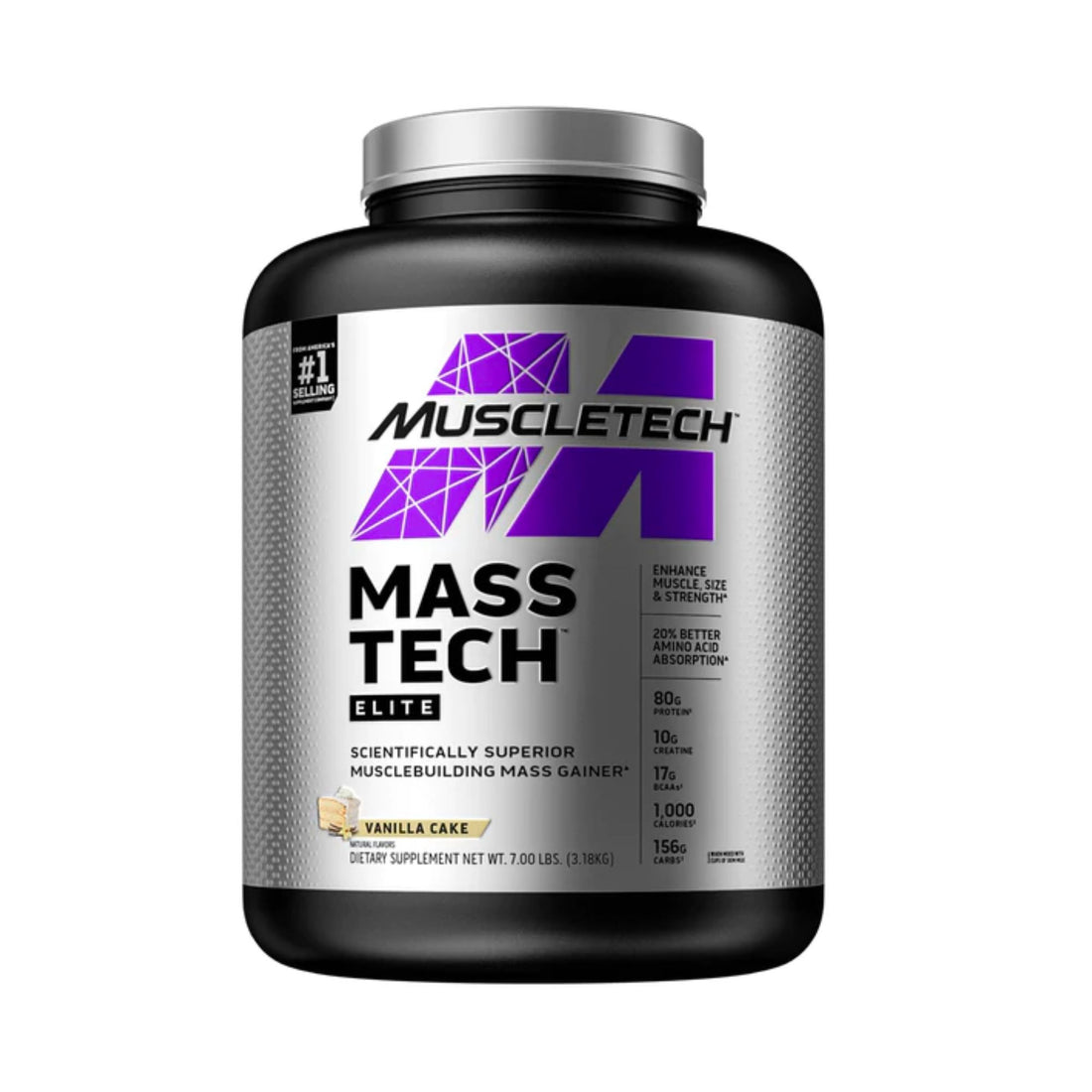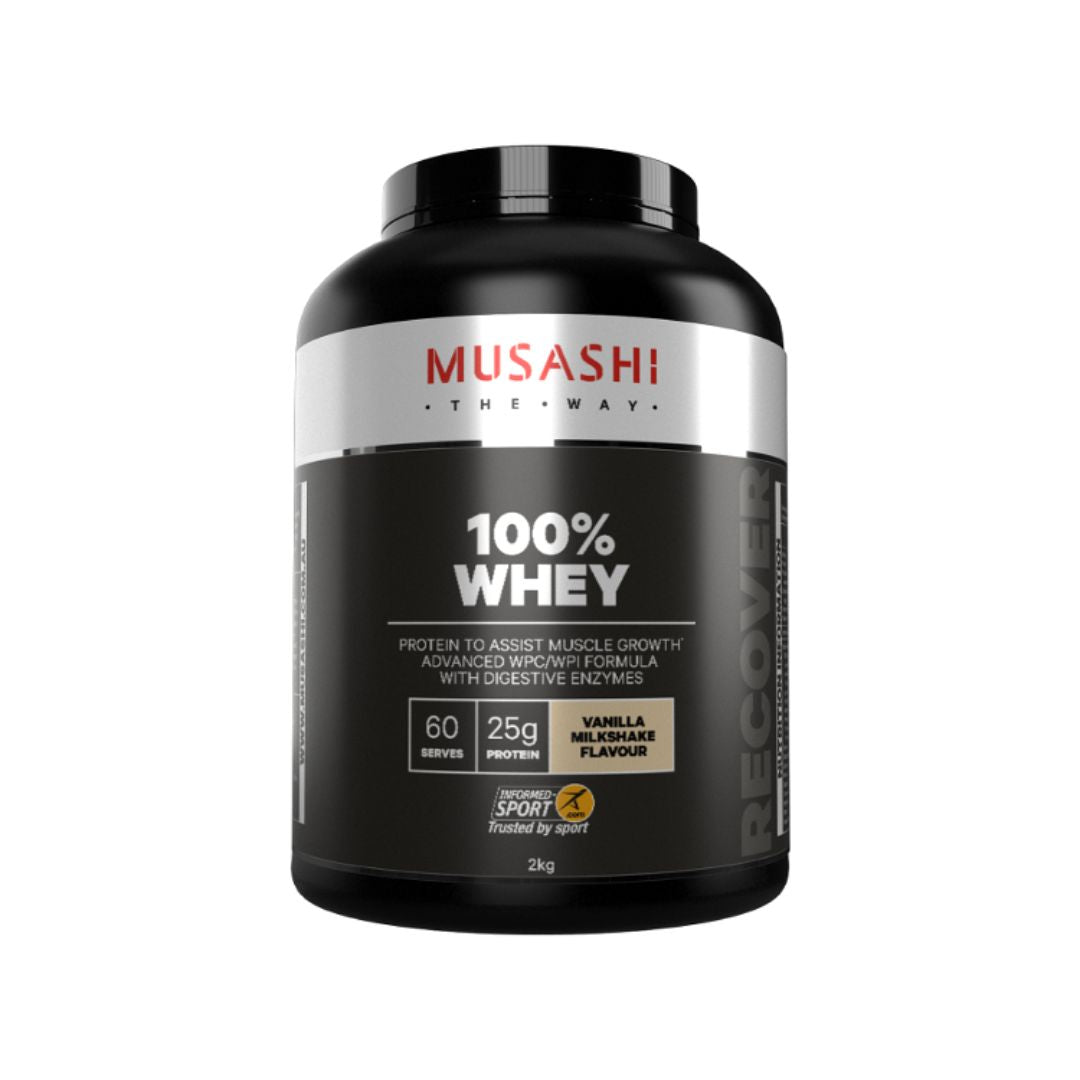DISCOVER OUR RANGE OF WHEY PROTEIN AVAILABLE AT FIT NUTRITION
Looking for the best protein? We’ll show you the whey! At Fit Nutrition, we offer a variety of whey protein formulas that can support your muscle growth, weight management, recovery and protein intake. From Evolve to Optimum Nutrition and everyone in between, consider Fit Nutrition your one-stop shop for the best whey protein formulas on the market.
If you haven’t heard of Optimum Nutrition, give their 100% Gold Standard Whey a chance - you can thank us later. R1 Protein by Rule 1 is a FIT favourite, while Muscle Nation Protein never fails to deliver. OxyShred OxyWhey Lean Wellness Protein is a go-to if you’re trying to lose weight, and Evolve Incredible Whey is… well, incredible.
Too many to choose from? Sorry, not sorry. That’s a testament to the quality of whey proteins on our shelves. Head in-store or chat with us online; our knowledgeable team can help you find the right one.
38 products
-
Mass Tech Elite
 Vendor:Muscletech
Vendor:MuscletechMass Tech Elite
Regular price $109.95Regular priceUnit price per -
Musashi 100 Whey
 Vendor:Musashi
Vendor:MusashiMusashi 100 Whey
Regular price From $54.36Regular priceUnit price per$67.95Sale price From $54.36
Whey Protein FAQs
What is whey protein?
Whey protein is a dietary supplement typically used by athletes and bodybuilders to support muscle growth and aid in recovery after a workout or other physical activity. It is a high-quality protein derived from milk by separating the liquid whey from the curds. Unlike other forms of protein, such as casein, whey protein is quickly absorbed by the body, making it an ideal choice to fuel muscles during and after exercise. Many people also use whey protein as a meal replacement or as a way to supplement their diets with additional protein. It can be added to smoothies, shakes, oats or anything else you like.
Is whey protein bad for you?
Whey protein has become a staple in the health and fitness industry for its ability to aid in muscle growth and recovery. So, is whey protein actually bad for you? Unless you have lactose intolerances or issues with dairy, whey protein is generally considered safe for most people. The important thing is to follow the recommended serving size on the product packaging. As with any supplement, it is important to talk to a healthcare professional before incorporating whey protein into your diet.
What is whey protein made from?
Whey protein, as the name suggests, comes from whey - a protein-rich liquid that is separated from milk during cheese production. Once separated, the whey undergoes a series of processing steps, including filtration and drying, to create the highly concentrated and easily digestible whey protein powder that we know and love today.
What does whey protein do?
Whey protein has become a popular supplement among athletes and fitness enthusiasts due to its ability to support muscle growth and recovery. This high-quality protein contains all the essential amino acids needed by the body for muscle protein synthesis. Whey protein helps repair and build muscle tissue, supports immune function, and aids weight management by increasing satiety. Regular consumption of whey protein can benefit individuals looking to improve their overall fitness and health, while helping to curb cravings and hit protein targets.
Can whey protein cause pimples?
Whey protein should not cause pimples when taken in accordance with the recommended daily serving. It's important to note that everyone's body is different, and what may cause breakouts for one person may not affect others. Intolerances or allergies to dairy may cause pimples if you are consuming whey protein. If you are concerned about pimples and whey protein, you may want to consider other sources of protein, such as a vegan protein powder, or speak with a healthcare professional.
Is whey protein good for weight loss?
Whey protein has become increasingly popular among those looking to achieve their body goals. It contains all essential amino acids and is easily digestible, making it a great supplement to support a weight loss journey. Whey protein has the highest TEF (thermogenic effect of food) while also supporting lean muscle growth and satiety. However, it is important to note that weight loss is not solely achieved by supplementing with whey protein, and a balanced diet and exercise regimen should also be followed.
Does whey protein contain lactose?
Does whey protein contain lactose? The answer is yes, but the amount depends on the type of whey protein. While whey concentrate can contain up to 5% lactose, isolates and hydrolysates contain almost zero lactose. It is important to check labels and consult with a healthcare professional before adding whey protein to your diet, especially if lactose intolerance is a concern.
Is whey protein gluten-free?
The answer is that it depends on the specific product. While many brands of whey protein are gluten-free, others may contain trace amounts due to cross-contamination during manufacturing. It is important to carefully read labels and conduct your own research before consuming a whey protein product.
Does whey protein go off?
The truth is that whey protein eventually expires. Therefore, it is important to check the expiration date on the package and store it properly in a cool, dry place. Consuming expired whey protein can lead to unpleasant side effects.




